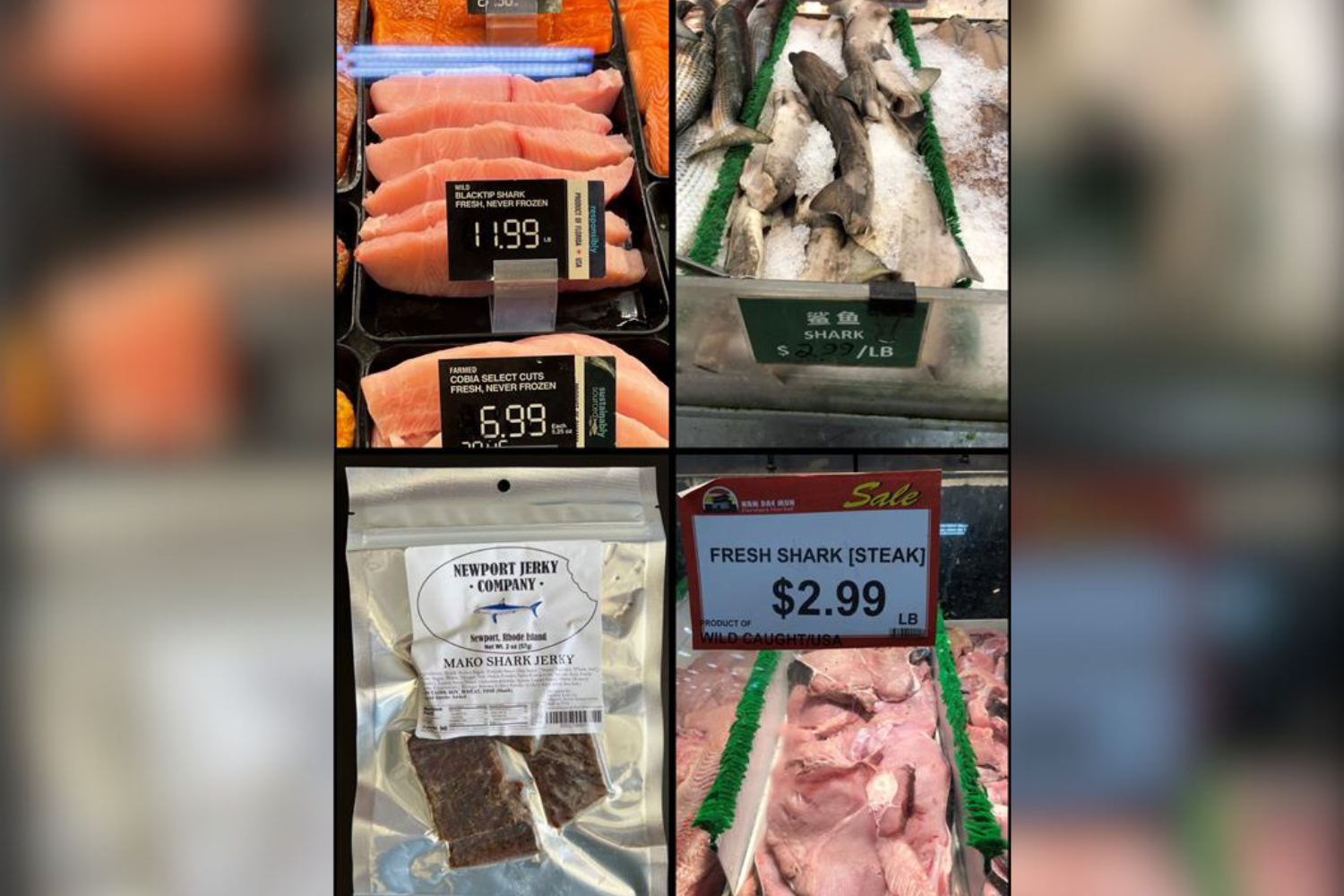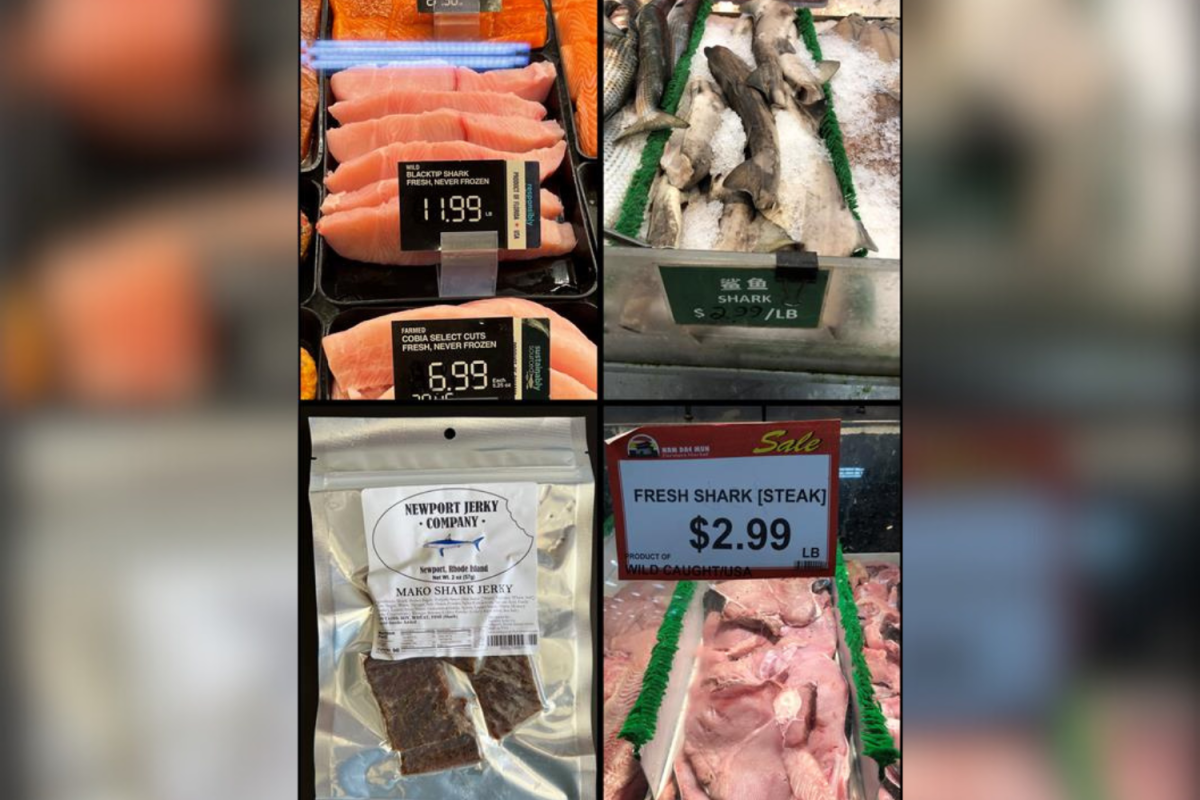
Food products containing shark are being sold in grocery stores, seafood markets and online across the United States—and in some cases, they come from species at risk of extinction.
This is the warning of researchers from the University of North Carolina at Chapel Hill, who used DNA barcoding to analyze 30 such shark products purchased in Washington, D.C., North Carolina, Florida, and Georgia in 2021 and 2022.
They found that nearly one-third of the samples came from endangered or critically endangered species—including great hammerhead, scalloped hammerhead, shortfin mako and tope.
“Of the 29 samples, 93 percent were ambiguously labeled as ‘shark,’ and one of the two products labeled at the species level was mislabeled,” said Savannah J. Ryburn, the study’s lead author, in a statement.
“We found critically endangered sharks being sold in grocery stores, seafood markets and online.”
Mislabeling and public health concerns
The study found widespread mislabeling. In fact, only one product had a correct, species-specific label. Many packages were sold simply as “shark,” making it impossible for consumers to know what they were buying.
Prices also varied dramatically. Fresh shark meat sold for as little as $6.56 per kilogram, while shark jerky averaged more than $200 per kilogram.
Beyond conservation concerns, researchers warned that some shark species, including hammerheads and smooth-hounds, contain high levels of mercury, methylmercury and arsenic, which can damage the brain and nervous system, cause cancer and impair fetal development.
In 2022, another study found that endangered shark meat was found in pet food, often labeled under the terms “white fish” or “ocean fish.”
Conservation context
Shark populations have already dropped by more than 70 percent since the 1970s due to bycatch, climate change, habitat destruction and overfishing. The International Union for the Conservation of Nature (IUCN) estimates that more than a third of shark species are now threatened with extinction.
While 74 shark species are protected under the Convention on International Trade in Endangered Species (CITES), enforcement remains limited. Once sharks are processed into fillets or jerky, visual identification is nearly impossible, leaving loopholes in trade restrictions.

Savannah Ryburn
Call for stronger labeling
“The legality of selling shark meat in the United States depends largely on where the shark was harvested and the species involved,” Ryburn explained.
“By the time large shark species reach grocery stores and markets, they are often sold as fillets with all distinguishing features removed, making it unlikely that sellers know what species they are offering.”
The authors argue that requiring species-level labeling could help protect consumers and vulnerable shark populations.
“Sellers in the United States should be required to provide species-specific names,” Ryburn said. “And when shark meat is not a food security necessity, consumers should avoid purchasing products that lack species-level labeling or traceable sourcing.”
Do you have a tip on a science story that Newsweek should be covering? Do you have a question about sharks? Let us know via science@newsweek.com.
Reference
Ryburn, S. J., Yu, T., Ong, K. J., Wisely, E., Alston, M. A., Howie, E., Leroy, P., Giang, S. E., Ball, W., Benton, J., Calhoun, R., Favreau, I., Gutierrez, A., Hallac, K., Hanson, D., Hibbard, T., Loflin, B., Lopez, J., Mock, G., Myers, K., Pinos-Sánchez, A., Suarez Garcia, A. M., Retamales Romero, A., Thomas, A., Williams, R., Zaldivar, A., & Bruno, J. F. (2025). Sale of critically endangered sharks in the United States. Frontiers in Marine Science. https://doi.org/10.3389/fmars.2025.1604454




